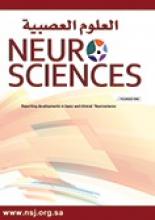Article Figures & Data
Tables
IEM Genetic causes Treatments Pyridoxine dependent epilepsy ALDH7A1 Pyridoxine +/- folinic acid PROSC Arginine, Lysine restricted diet Pyridox(am)ine 50 -Phosphate oxidase (PNPO) PNPO PLP +/- Pyridoxine Deficiency Biotinidase deficiency BTD Biotin Glucose transporter 1 deficiency syndrome SLC2A1 Ketogenic diet Biotin-thiamine-responsive basal ganglia disease SLC19A3 Biotin, Thiamine Serine biosynthesis defects PHGDH, PSAT1, PSPH Serine + Glycine Molybdenum cofactor deficiency type - A MOCS1 cyclic pyranopterin monophosphate Cobalamin C deficiency MMACHC cobalamin, betaine Cerebral folate deficiency FOLR1 Folinic acid Creatine deficiency syndromes GAMT Creatine, arginine-restricted diet, ornithine GATM creatine monohydrate SLC6A8 creatine monohydrate Pyruvate dehydrogenase deficiency PDHA1 PDHB, DLAT, PDHX, PDP1 Ketogenic diet DEND (developmental delay, epilepsy, and neonatal diabetes) syndrome KCNJ11 sulfonylurea Hyperinsulinism-Hyperammonemia syndrome GLUD1 Diazoxide + protein restriction Tetrahydrobiopterin deficiency (BH4) PTPS deficiency PTS BH4, L-dopa, 5-HTP DHPR deficiency QDPR Low phenylalanine diet, Folinic acid, L-dopa, GTPCH deficiency GCH1 5-HTP PCD PCBD1 SPR deficiency SPR L-Dopa, 5-HTP Features Onset Early: neonatal, infancy or early childhood Seizure types Myoclonic, tonic, infantile spasms
Seizures worsening with fasting (GLUT1) or with high protein meals (urea cycle defects)
Progressive myoclonic epilepsy phenotype
Seizures refractory to anti-epileptic drugs
Seizures worsening with anti-epileptic drugsNeurological features Developmental delay /regression
Movement disorders
Fluctuating course of illnessSystemic symptoms Dysmorphic features
Organomegaly
Ophthalmological abnormalities (cataracts, retinitis pigmentosa,cherry red spot, optic nerve atrophy)Family history Parental consanguinity
Metabolic or unexplained neurological disorder
Death of unknown etiologyEEG Burst-suppression, multifocal spike discharges, hypsarrhythmia Comb-like rhythm (maple syrup urine disease) MRI/MRS Normal / non specific abnormalities
Corpus callosum dysgenesis (pyruvate dehydrogenase deficiency)
Abnormal MRS in cerebral creatine deficiency or GABA transaminase deficiencySource Diagnostic test Blood Blood glucose, electrolytes, creatine, ammonia, lactic acid, uric acid, copper, ceruloplasmin, homocysteine, biotinidase assay, VLCFA, transferrin isoelectric focusing, serum amino acids Urine alpha-aminoadipic semialdehyde acid, pipecolic acid, thiosulfate, xanthine, hypoxanthine, organic acids, guanidinoacetate, creatine, creatinine. CSF Glucose, lactate, pyruvate, neurotransmitters Genetic testing Array CGH, next generation sequencing (epilepsy panel, Whole exome sequencing) VLCFA - very long chain fatty acid






